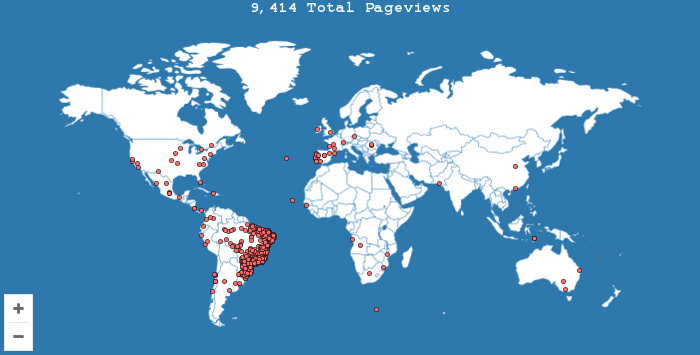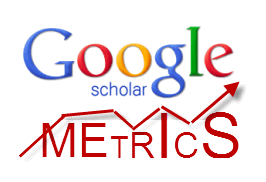The practice of rotational laboratory in the development of mathematical skills in elementary school I
DOI:
https://doi.org/10.31496/rpd.v24i49.1594Keywords:
mathematics, learning, hybrid teaching, rotational laboratory, Khan AcademyAbstract
The objective of this work is to evaluate the implementation of a rotational laboratory, linked to the development of mathematical skills using the Khan Academy platform, with students of the 5th year of Elementary School I of a municipal public school. The proposal, qualitative, is characterized as field research, with the application of electronic questionnaires with 23 students during the implementation of the rotational laboratory. During the stages, students acquired greater involvement with the theme, experiencing practices consistent with the offer, where the construction of knowledge occurred gradually, critically and relevantly. The obtained results indicate that this methodology enriched the pedagogical practices, presenting a didactics of learning centered in the student, having the teacher as a mediator of the learning processes and actions of evolution of the teaching. The proposal provided students with different forms of learning according to their particularities, providing greater autonomy in the appropriation of the ideas worked on, achieving success in the expected objectives.
Downloads
References
ACADEMY, K. Como a Khan faz o nosso conteúdo mais acessível? Mountain View, CA: Khan Academy, 2024. Disponível em: https://support.khanacademy.org/hc/pt-br/articles/360015623271-Com-o-a-Khan-Academy-faz-nosso-conte%C3%BAdo-mais-acess%C3%ADvel- Acesso em: 21 set. de 2022.
ACADEMY, K. Qual é a história da Khan Academy? Mountain View, CA: Khan Academy, 2024. Disponível em: https://sou.ucs.br/revistas/index.php/ricaucs/article/view/68. Acesso em: 06 jun. de 2022.
AGUIAR, B; CORREIA, W; CAMPOS, F. Uso da escala Likert na análise de jogos. 2011. Salvador: SBC-Proceedings of SBGames Anais, v. 7, n. 2, 2011. Disponível em: https://www.researchgate.net/profile/Fabio-Campos-7/publication/266051378_Uso_da_Escala_Likert_na_Analise_de_Jogos/links/
b1b66e0cf28ebe92e18fdb/Uso-da-Escala-Likert-na-Analise-de-Jogos.pdf. Acesso em: 27 ago. 2022.
ARAÚJO, V. D. S. Khan Academy: possibilidades do uso do jogo como ferramenta de apoio pedagógico no ensino e aprendizagem de frações no ensino fundamental. 2017. Dissertação (Mestrado em Metodologias para o Ensino de Linguagens e suas Tecnologias) – Universidade Norte do Paraná, Londrina. 2017. Disponível em: http://repositorio.pgsskroton.com.br/bitstream/123456789/10286/1/
DISSERTA%C3%87%C3 %83O%20VALDECI%20ARA%C3%9AJO%20-%20BIBLIOTECA%20-%20Final%2026- 01-18%20novo.pdf. Acesso em: 27 ago. 2022.
BACICH, L. Ensino híbrido: relato de formação e prática docente para a personalização e o uso integrado das tecnologias digitais na educação. Simpósio Internacional de Educação e Comunicação - SIMEDUC, n. 7, 2016. Disponível em: https://eventos.set.edu.br/simeduc/article/view/3323. Acesso em: 19 mar. 2022.
BACICH, L.; MORAN, J. M. Aprender e ensinar com foco na educação híbrida. Revista Pátio, n. 25, jun., 2015, p. 45-47
BACICH, L.; MORAN, J. Metodologias ativas para uma educação inovadora: uma abordagem teórico-prática. Porto Alegre: Penso, 2018.
BACICH, L.; TANZI, A.; TREVISANI, F. de M. (org.) Ensino híbrido: personalização e tecnologia na educação. Porto Alegre: Penso, 2015.
BRASIL. Ministério da Educação. Base Nacional Comum Curricular. A Área de Matemática. Brasília: Ministério da Educação, p. 266, 2018. Disponível em: http://basenacionalcomum.mec.gov.br/images/
BNCC_EI_EF_110518_versaofinal_site.pdf. Acesso em: 22 abr. 2022.
BRASIL. Ministério da Educação. Base Nacional Comum Curricular. Tecnologias Digitais da Informação e Comunicação no contexto escolar: possibilidades. Brasília: Ministério da Educação, 2018. Disponível em: http://basenacionalcomum.mec.gov.br/implementacao/praticas/caderno-de-praticas/aprofundamentos/193-tecnologias-digitais-da-informacao-e-comunicacao-no-contexto-escolar-possibilidades. Acesso em: 22 abril 2022.
CHRISTENSEN, C. M; HORN, M. B; STAKER, H. Ensino híbrido: uma inovação disruptiva? Cambridge: Clayton Christensen institute, 2013. Disponível em: https://www.pucpr.br/wp-content/uploads/2017/10/ensino-hibrido_uma-inovacao-disruptiva.pdf. Acesso em: 09 nov. 2022.
DALMORO, M; VIEIRA, M. K. Dilemas na construção de escalas tipo Likert: o número de itens e a disposição influenciam nos resultados? RGO - Revista Gestão Organizacional. v. 6 - Edição Especial, 2013. Disponível em: https://bell.unochapeco.edu.br/revistas/index.php/rgo/article/view/1386 Acesso em: 01 jun. 2022.
OLIVEIRA, L. de; SPALL, L.; SCHENKEL, D. Ensino híbrido: experimentando o modelo de laboratório rotacional. In: MOEPEX, 5. 2016. Disponível em: https://eventos.ifrs.edu.br/index.php/MoEPExIbiruba/5MOEPEX/paper/viewFile/
/634. Acesso em: 28 nov. 2022.
OLIVEIRA MELLE, L de; BRAGA, J; STIUBIENER, I. Estudo sobre metodologias de desenvolvimento de jogos digitais educacionais: revisão sistemática da literatura. In: Brazilian Symposium on Computers in Education (Simpósio Brasileiro de Informática na Educação-SBIE). 2019. p. 1052
DUARTE, P.V.C. Plataforma khan academy: uma análise de suas potencialidades na visão de professores do ensino fundamental I de um Município do Interior de São Paulo. 2018. Dissertação (Mestrado em Educação e Ciências Humanas) – Centro de Educação e Ciências Humanas, Universidade Federal de São Carlos, São Carlos, 2018. Disponível em: https://repositorio.ufscar.br/bitstream/handle/ufscar/10683/
Priscila%20Vandrea%20Camargo %20Duarte.pdf?sequence=1&isAllowed=y. Acesso em: 05 jun. 2022.
FERRETE, A. A. S. S.; FERRETE, R. B. A plataforma Khan Academy no ensino de matemática. Interfaces da Educação, v. 12, n. 35, p. 301–323, 2021. DOI: 10.26514/inter.v12i35.4775. Disponível em: https://periodicosonline.uems.br/index.php/interfaces/article/view/4775. Acesso em: 19 mar. 2022.
FREIRE, P. Pedagogia do oprimido. 3. ed. Rio de Janeiro: Paz e Terra, 1975.
FREIRE, P. Pedagogia do oprimido. Rio de Janeiro e São Paulo: Paz e Terra, 2014.
FREIRE, P. Pedagogia da autonomia: saberes necessários à prática educativa. São Paulo: Paz e Terra, 2003.
FORMS, G. Google Forms: Sign-in. 2022. Disponível em: https://docs.google.com/forms/u/0/. Acesso em: 21 set. 2022.
GARRISON, D. R.; KANUKA, H. Blended learning: Uncovering its transformative potential in higher education. Internet and Higher Education, n. 7, p. 95-105, 2004. Disponível em: https://doi.org/10.1016/j.iheduc.2004.02.001. Acesso em: 14 nov. 2022.
GIBSON, W. Neuromancer, São Paulo: Editora Aleph, 1991.
GONÇALVES, E. D. Novas tecnologias e aprendizagem ativa: uma proposta didática para o ensino da matemática. 2019. Monografia (Especialização em Informática Instrumental) - Universidade Federal do Rio Grande do Sul, Universidade Aberta do Brasil, Porto Alegre, 2019. Disponível em: https://www.lume.ufrgs.br/bitstream/handle/10183/202392/001106392.pdf?sequence=1&isAllowed=y. Acesso em: 20 mar. 2022.
GONSALVES, E.P. Iniciação à pesquisa científica. Campinas, SP: Alínea, 2001.
HORN, M.; STAKER, H; CHRISTENSEN, C. Blended: usando a inovação disruptiva para aprimorar a educação. Penso Editora, 2015.
KHAN ACADEMY. Multiplique números de três e quatro algarismos por números de um algarismo usando modelos de área. Mountain View, CA: Khan Academy, 2022. Disponível em: https://pt.khanacademy.org/math/arithmetic/x18ca194a:multiply-1-and-2-digit-numbers/x18ca194a:multi-digit-multiplication-place-value-and-area-models/e/multiplying-by-4-digit-numbers-with-visual-models. Acesso em: 26 set. 2022.
LEVITT, H et al. Journal article reporting standards for qualitative primary, qualitative meta-analytic, and mixed methods research in psychology. American Psychologist, v. 73, n. 1, p. 26–46, 2018. Disponível em: http://dx.doi.org/10.1037/amp0000151. Acesso: 14 maio 2022.
LIMA, L. H. F.; MOURA, F. R. O Professor no Ensino Híbrido. In: LIMA, L. H. F.; MOURA, F. R. Ensino híbrido: personalização e tecnologia na educação. Porto Alegre, RS: Penso, 2015.
LOCATELLI, C. W.; KOGA, T. L.; PRADO, E. de A.; TESTONI, L. A.; LOCATELLI, S. W. Khan Academy Platform and Mathematics education: what the research says. Research, Society and Development, [S. l.], v. 9, n. 10, p. e4899108801, 2020. DOI: 10.33448/rsd-v9i10.8801. Disponível em: https://rsdjournal.org/index.php/rsd/article/view/8801. Acesso em: 19 mar. 2022.
MININEL, F. Estudo fitoquímico da mamona: uso da técnica do laboratório rotacional adaptado. REAMEC-Rede Amazônica de Educação em Ciências e Matemática, v. 10, n. 1, p. e22006-e22006, 2022. Disponível em: https://periodicoscientificos.ufmt.br/ojs/index.php/reamec/article/view/12916/10215 Acesso em: 28 nov. 2022.
MORAN, J. M. Ensino e aprendizagem inovadores com tecnologias. Porto Alegre: PGIE-UFRGS, 2000.
MORAN, J. M. Novas tecnologias e mediação pedagógica. Papirus Editora. 2013.
MORAN, J. M.; MASETTO, M. T.; BEHRENS M. A. Novas tecnologias e mediação pedagógica. Campinas: Papirus, 2000.
MORAN, J. M. O que é educação a distância. 2002. Disponível em: http://www.eca.usp.br/prof/moran/site/textos/educacao_online/dist.pdf. Acesso em: 09 de set. 2022.
REGUS, C. O papel de Anísio Teixeira na Educação Brasileira. In: Fórum de Pesquisa Científica e Tecnológica (Canoas), 13. 2013. Disponível em: http://www.conferencias.ulbra.br/index.php/fpu/xiii/paper/view/1481. Acesso em: 29 nov. 2022.
RIBEIRO, L; FOSS, L; CAVALHEIRO, S. Entendendo o pensamento computacional. arXiv:1707.00338v1 [cs.CY] 2 Jul 20172017. Disponível em: https://arxiv.org/abs/1707.00338. Acesso em: 22 abr. 2022.
SILABE. Laboratório rotacional: o que é e como funciona? Disponível em: https://silabe.com.br/blog/laboratorio-rotacional-o-que-e-e-como-funciona/ Acesso em: 18 jun. 2022.
TESTA, M.; LOPES, E; VIDMAR, M; PASTORIO, D. Um olhar para a disciplina curricular cultura digital do novo ensino médio: a relação das tecnologias digitais de informação e comunicação e o ensino de física, Revista Brasileira de Ensino de Física, v. 45, 2023. https://doi.org/10.1590/1806-9126-rbef-2023-0048
THOMPSON, P. Estreia CEO Talks: exame entrevista Sal Khan. Revista Exame, edição de fevereiro/2021. Disponível em: https://exame.com/academy/ceo-talks-entrevista-sal-khan/. Acesso em: 06 jun. 2022.
VALENTE, J. Prefácio. In: BACICH, L.; TANZI NETO, A.; TREVISANI, F. de M. (Orgs.) Ensino híbrido: personalização e tecnologia na educação. Porto Alegre: Penso, 2015.
VERGARA, A. C. E.; HINZ, V. T.; LOPES, J. L. B. Como significar a aprendizagem de matemática utilizando os modelos de ensino híbrido. Revista Thema, [S. l.], v. 15, n. 3, p. 885-904, 2018. DOI: 10.15536/thema.15.2018.885-904.962. Disponível em: https://periodicos.ifsul.edu.br/index.php/thema/article/view/962. Acesso em: 14 mar. 2022.
Downloads
Published
How to Cite
Issue
Section
License
Submitted texts approved by the Editorial Board of Revista Profissão Docente will be published, and their authors may use them for future publications, provided that the original edition is properly cited (title, Revista Profissão Docente, volume, issue, year of publication, and page numbers of the referenced text). All articles published in this journal are the sole responsibility of their authors. Revista Profissão Docente and Universidade de Uberaba assume no legal responsibility for their content.
















